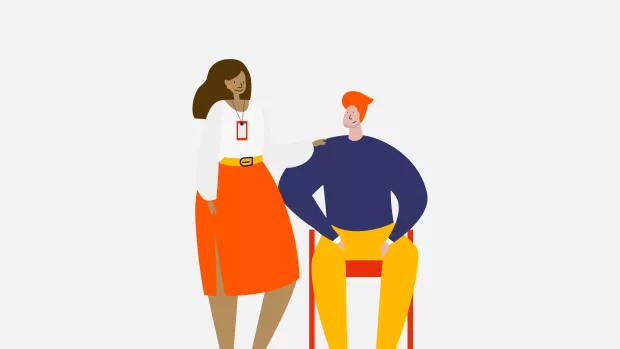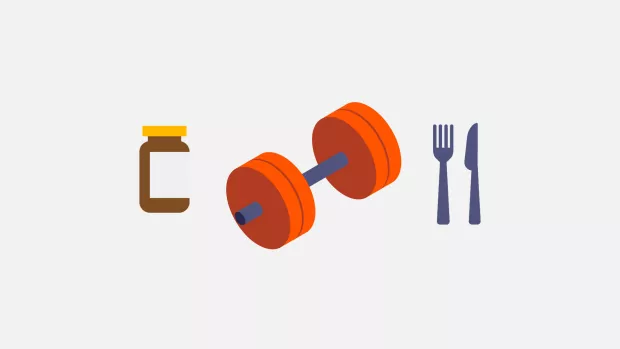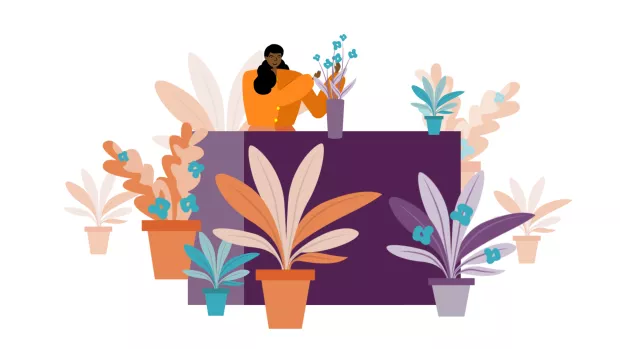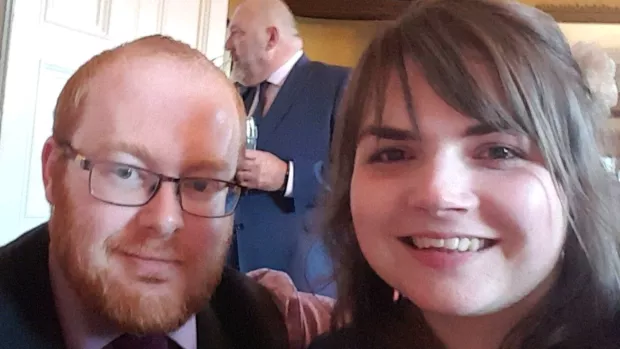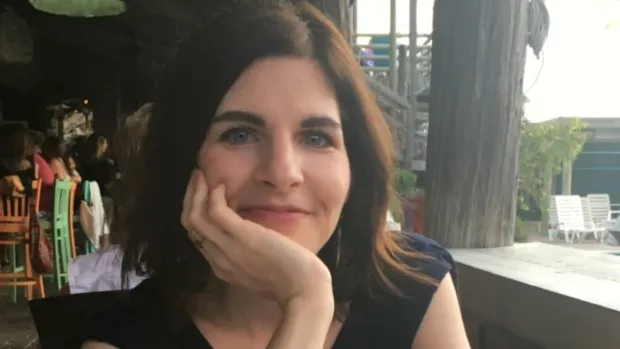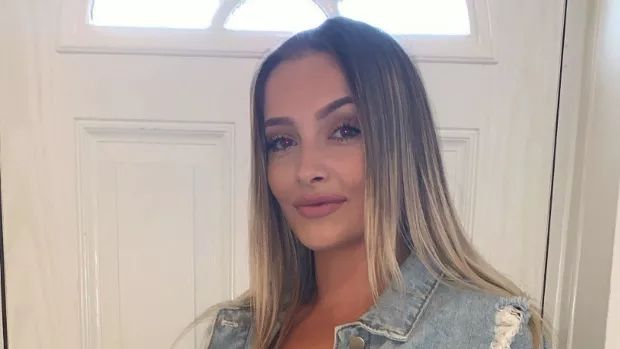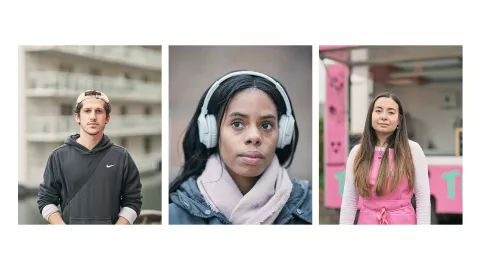
Meet 6 young people living with MS
One in five people diagnosed with multiple sclerosis (MS) in the UK is now under the age of 30.
30 under 30-year-olds told us their stories for our new photo series with award winning portrait photographer Spencer Murphy. They took part to shed light on the impact of MS as part of our Stop MS Appeal.
Meet 6 of our under 30s who’ve been diagnosed with relapsing MS. They talk about their diagnosis, their lives now and their hopes and fears for the future - and why new treatments for all forms of MS are so important.
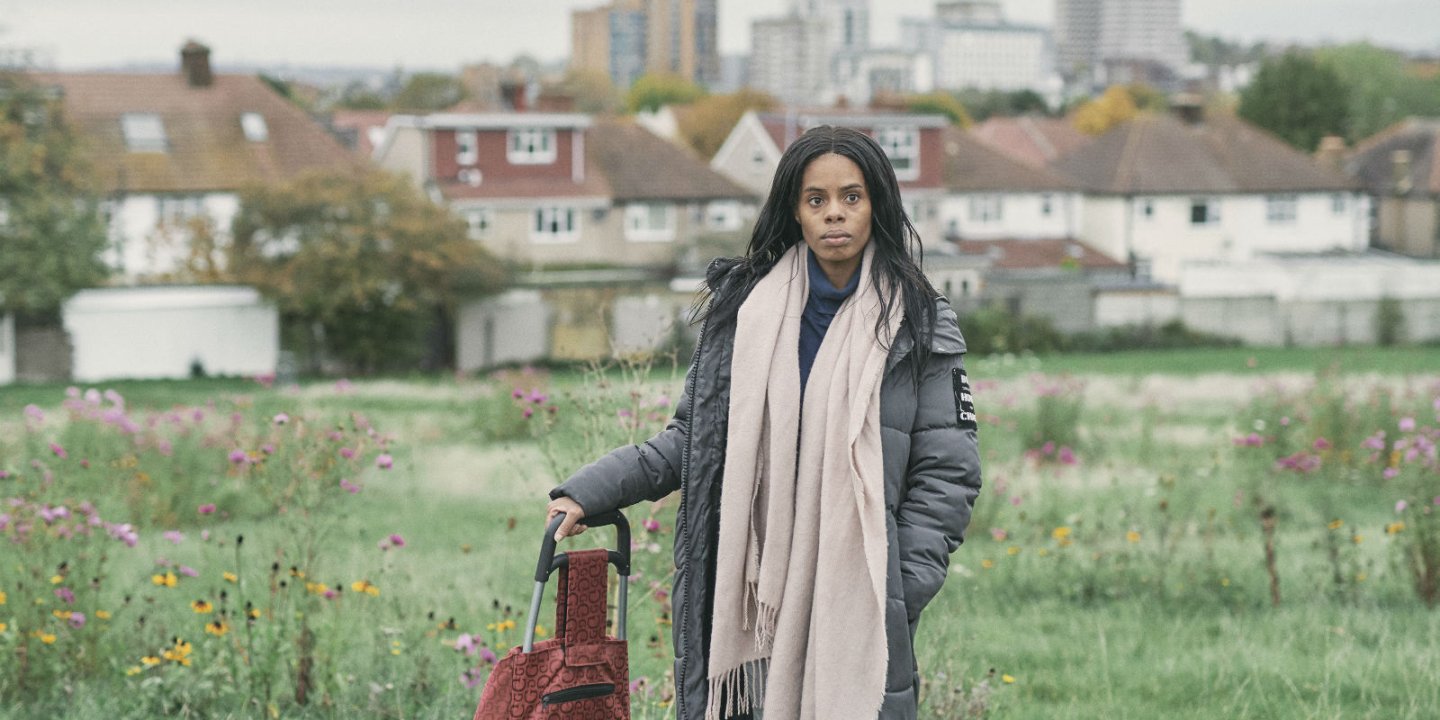
Brieann Campbell, 24
I got diagnosed with relapsing MS just before my 14th birthday. I didn’t know what MS was. I asked the MS nurse: ‘so how long am I taking this medication for?'
When she told me I was gonna have to take it for the rest of my life, that’s when it hit. I thought my life was over.
I couldn’t walk properly and was using crutches to go everywhere. I couldn’t eat, I couldn’t sleep, my talking was bad. Then I got a really nice new consultant who moved me on to a new treatment. I started feeling more in control and became more open to finding me again.
I lost my father and grandmother, then my grandfather, all around the same time I got ill. My mum and I had always had a very difficult relationship before that. I became a young person in care, then decided to move to west London for education. I’m studying BA business with entrepreneurship. It’s been a long process – I’ve been at uni since 2015.
In my spare time I like reading, cooking, and I love being in the bath. I’m trying to keep my body as calm and mind as calm as possible. All of this keeps my MS calm. When I’m moving at a fast pace I just break down – my body’s like yeah I’m done!
I can’t work against my MS, I have to work with it. So I try to be around positive people and anything that uplifts me rather than brings me down. I believe in affirmations – the way you talk to yourself is very important.
I don’t know exactly how I’ll cope in the future or what will happen. Sometimes I’m happy then I get sad. I get flashbacks about all I’ve been through. But I think if I just keep going and keep being calm then I can get through. I need to take it day by day.
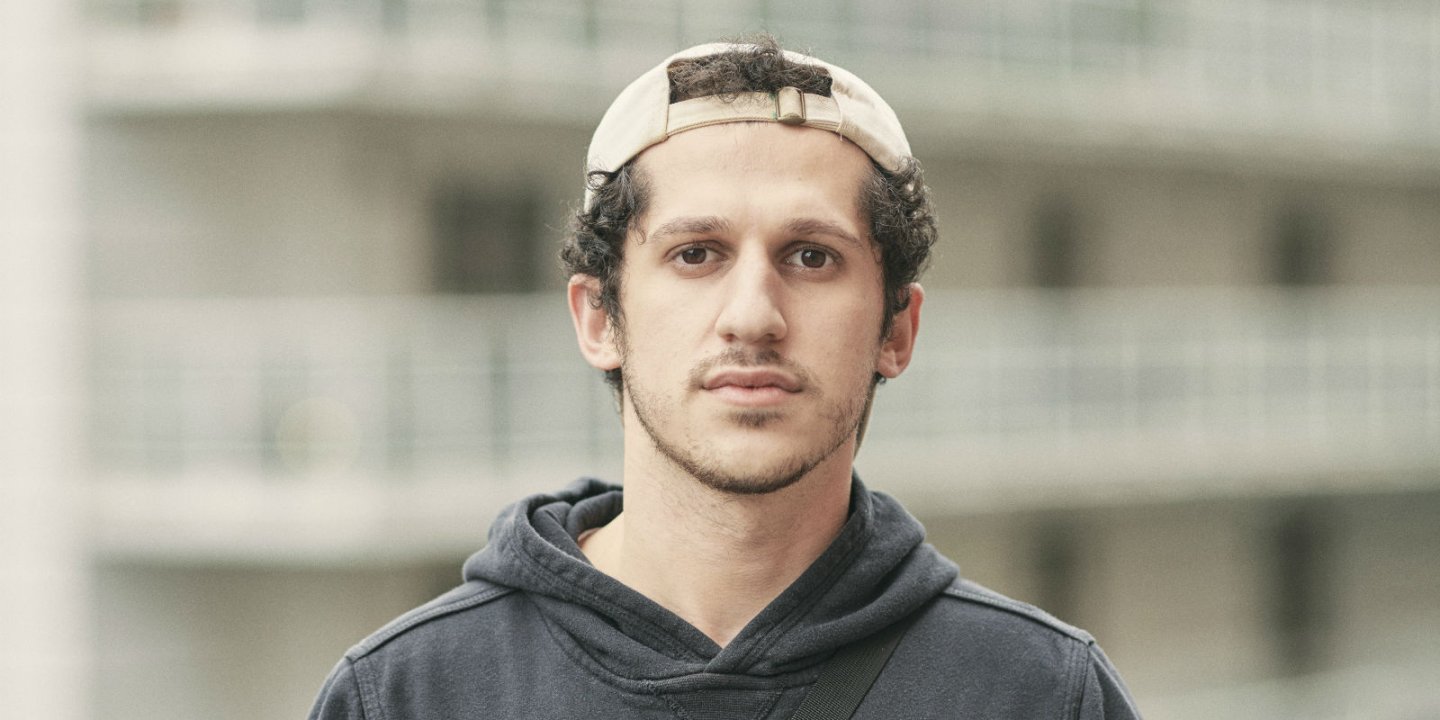
Ayad Marhoon, 23
At first, there were a handful of friends I was comfortable enough telling about my diagnosis.
Sometimes people would see me with a walking stick and I’d play it off as a football injury. But eventually it came to a point it was easier for me to tell people.
Generally MS does knock your confidence. Before I would’ve been happy to jump straight into anything. I’m less up for making new relationships than I used to be. I think it might be awkward talking about why I’ve come to meet someone with a walking stick. But the relationships that existed before have become stronger after my diagnosis, especially with my family.
I’m still trying to get a better idea of how my future is going to look. I’m an optimistic person and I try not to think about negative scenarios but they’re always going to be there. I hope to work as a clinical psychologist one day. But with the rate I’m changing at the moment I don’t know what things will be like in five years’ time. It’s difficult to plan ahead with that uncertainty.
I was diagnosed with relapsing MS but there’s an uncertainty about it because the condition seems to be progressing. We had a phone call recently about exploring new medications to see if any of them might work better than the one I’m on now.
Every time I start to feel a bit worse I have to come to terms with it again, and the way I am at the moment. It would be great to know there wasn’t the possibility of it getting any worse. That would be massive weight taken off my shoulders.
I know I have a lot more in life to be grateful for than I have to be upset about, and it was only after the diagnosis I really started understanding that. Before MS I never thought I should be grateful that I have two working legs – until you lose one of those legs you don’t really think about it that much. I’m a lot more appreciative of what I have because I’ve experienced losing something.
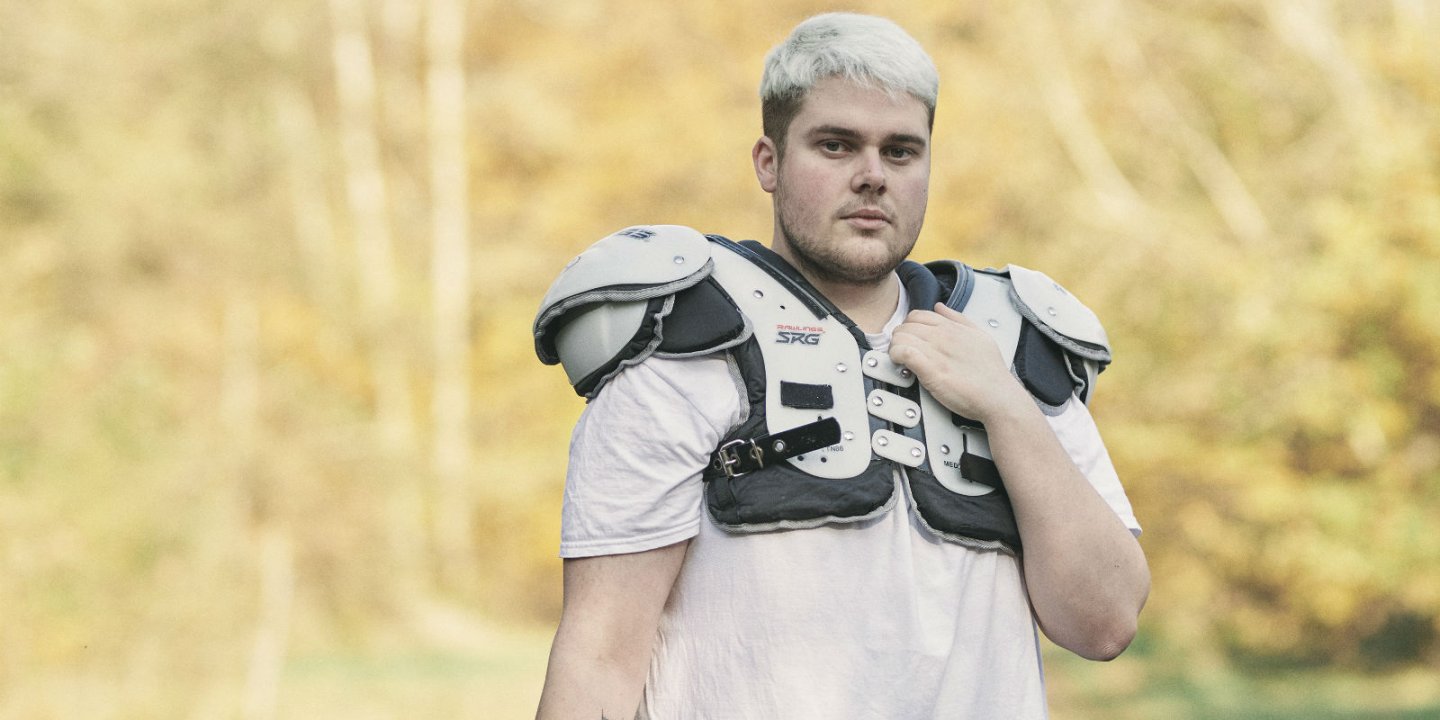
Zach Jewkes, 21
It started off as just a little bit of tingling in my toes. As the weeks went on I was in and out of A&E and gradually deteriorating.
It got to a point where I couldn’t go to the toilet and had to be catheterised. I couldn’t walk without a Zimmer frame because my balance was so bad, and the numbness had spread up to my waist, which is why I couldn’t go to the toilet.
When I got the diagnosis I was terrified. If you lose feeling and gradually deteriorate you assume it’s just going to carry on so it was weird, but good, when it stopped.
It was tough telling friends and family. It was a shock to my parents because no one in the family has anything like this. And there wasn’t an easy way to tell my girlfriend. They weren’t really sure how to feel. It hit them more when they came to visit me and I was on a Zimmer frame and had a bag of urine strapped to my leg.
I was gradually having things taken from me that I was really passionate about and that was tough. I was an American footballer for a few years and had to stop because of MS. I love cars and love driving but couldn’t drive. So in the early days when I didn’t know if I’d be able to drive ever again that was awful. Now I drive an automatic.
The worst time was my first relapse. It just cut into me, mentally and physically. It started to affect relationships too. With lack of sensation you lose intimacy. My relationship with my girlfriend was taking a hit because you can’t do certain stuff. It was hard getting that balance of making sure everything was OK with her and OK with me in my head. She was absolutely amazing though. We’ve been together for three years and she’s stuck with me through all of this.
I work in pensions and finance now. Work is going really well and they’re really impressed with the work I’m doing. I didn’t let it hold me back at all. I’d love to get a job in London and carry on working my way up the ladder.
At the moment I’m in good shape, I do lots of exercise. But I’m scared I’m going to spiral into progressive and permanent disability. I try to avoid thinking about it, but it’s the elephant in the room.
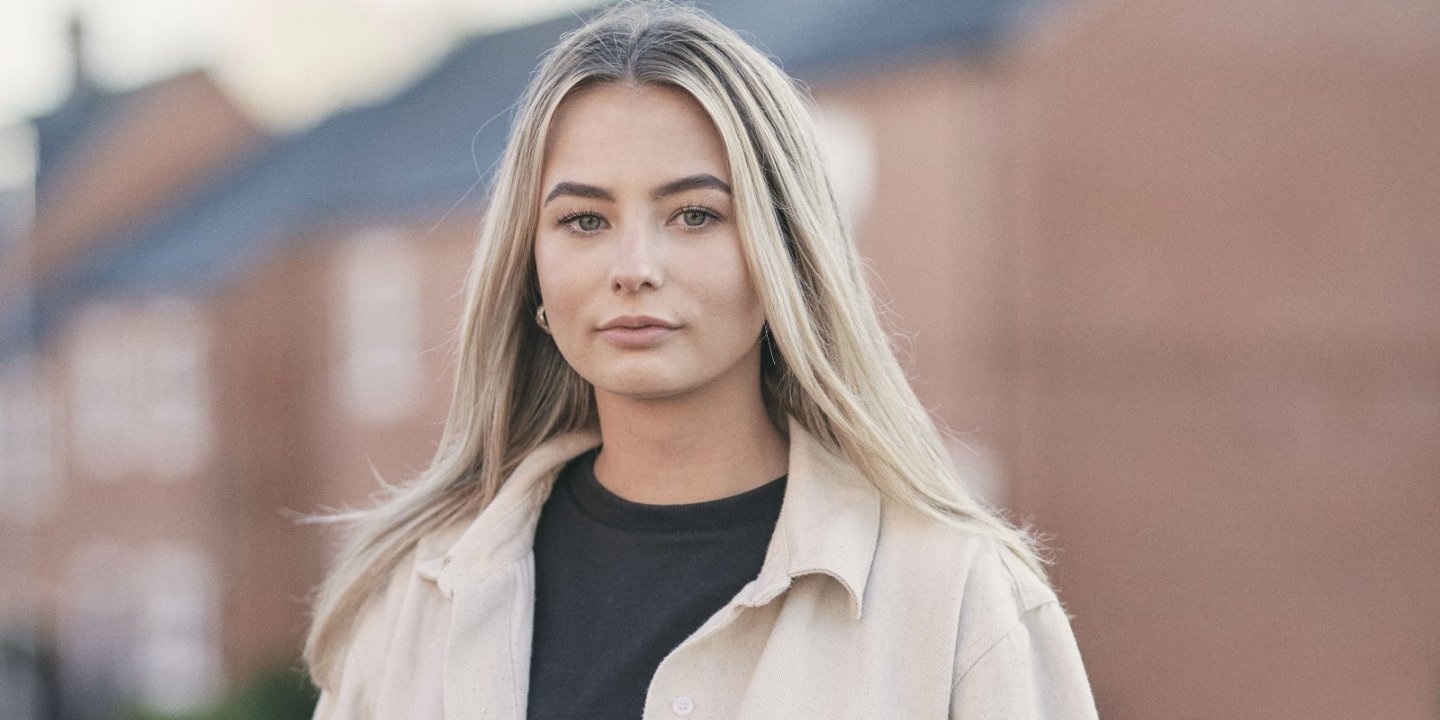
Ellie Marsh, 22
My diagnosis was awful. I thought it was just a follow up appointment so I went on my own. The doctor said: ‘we’ve had a look at your MRI and you’ve got MS – but I don’t really know much about it, so I’ve booked another appointment for you to talk to a specialist in 8 weeks’ time’.
I was just in pieces, I didn’t know what to do. I saw my GP who said ‘it’s not the end of the world, you could get hit by a bus tomorrow’. Really helpful.
I struggle with heavy legs and drop foot, where I can trip over and lose my balance. Fatigue is a big one and can sometimes be tough at work. And I get cognitive fog, where I struggle with getting words out sometimes and explaining things.
MS has impacted my relationships with close family members. I know it’s because they care about me but I don’t want them constantly checking in on me. So I’ve pushed them away a bit. Conversation always starts with MS and I’d rather it didn’t. I’d rather not have to think about it every day, but I don’t really have a choice.
Me and my friends have a few more jokes about my balance and things like that, but it’s not had any negative impact on friendships. What it has done is given me a lot more friends who understand what I’m experiencing, through groups like MS Together.
I never thought I’d be susceptible to anxiety or depression. I’ve always been a very upbeat, laid back person. Until this last year when I realised that if I don’t look after myself, ask for help, or speak about things that are getting on top of me, it could escalate in to a much bigger thing.
MS has made me aware the future is unpredictable, and anything can happen to anybody. It’s made me feel if I’m happy and healthy that’s all that matters. Life is short and we just have to enjoy it as much as we can.
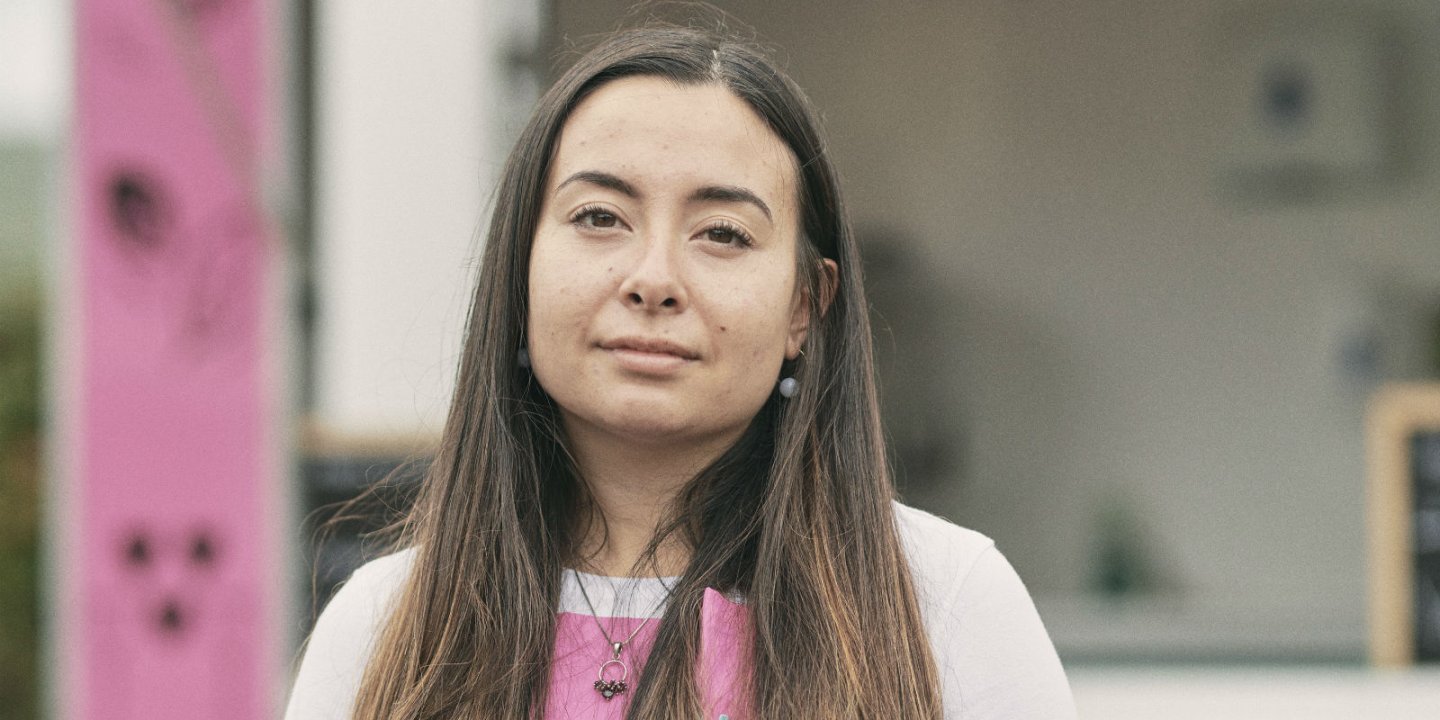
Panida Staplehurst, 25
I was told I had MS during lockdown. I was due to have a meeting but the doctor had to call me instead. It was probably better for me. I don’t deal very well with tough news in person.
Before I began on medication, I really started to feel the effects of MS. I was losing the use of one of my legs, and couldn’t even walk short distances. Me and my boyfriend went out to a restaurant one night and the 15 minute walk was too painful. He had to hold me up. I realised how severe it could be and that it could get worse, which was quite scary. It was the first time I’d felt anything really stop me.
I’m self-employed – me and my mum run a catering company together doing Thai food. We love it! But I’ve worried about what would happen with our business if I need to make changes: what if I need a wheelchair, what kind of help can I get? If I couldn’t work how can we earn a living? It’s triggered all these negative thoughts.
The stress of this year has been top. The combination of self-employment, the pandemic and this underlying condition. I got a text saying I have to shield – I thought, my goodness I can’t shield, I’m working full time and still have to deliver food to people! But luckily I contacted my neuro and was told I didn’t have to that text just went out to people newly on the system.
I’m not very good at talking through my feelings. But I spoke to a counselling service through the MS Society on Zoom and the counsellor gave me so many tools to help explain how I was feeling.
Fatigue is the main symptom that affects me now. But since starting medication I’ve been much better. I haven’t had to write in my symptoms diary for about a month because I haven’t really been feeling anything, which is quite exciting.
I do have fears about the future, but then again I could be hit by a car tomorrow. We can’t predict what will happen. I want to learn about MS and be heard – and for other people to hear about it and understand what MS is. If we could find a cure it would be amazing.
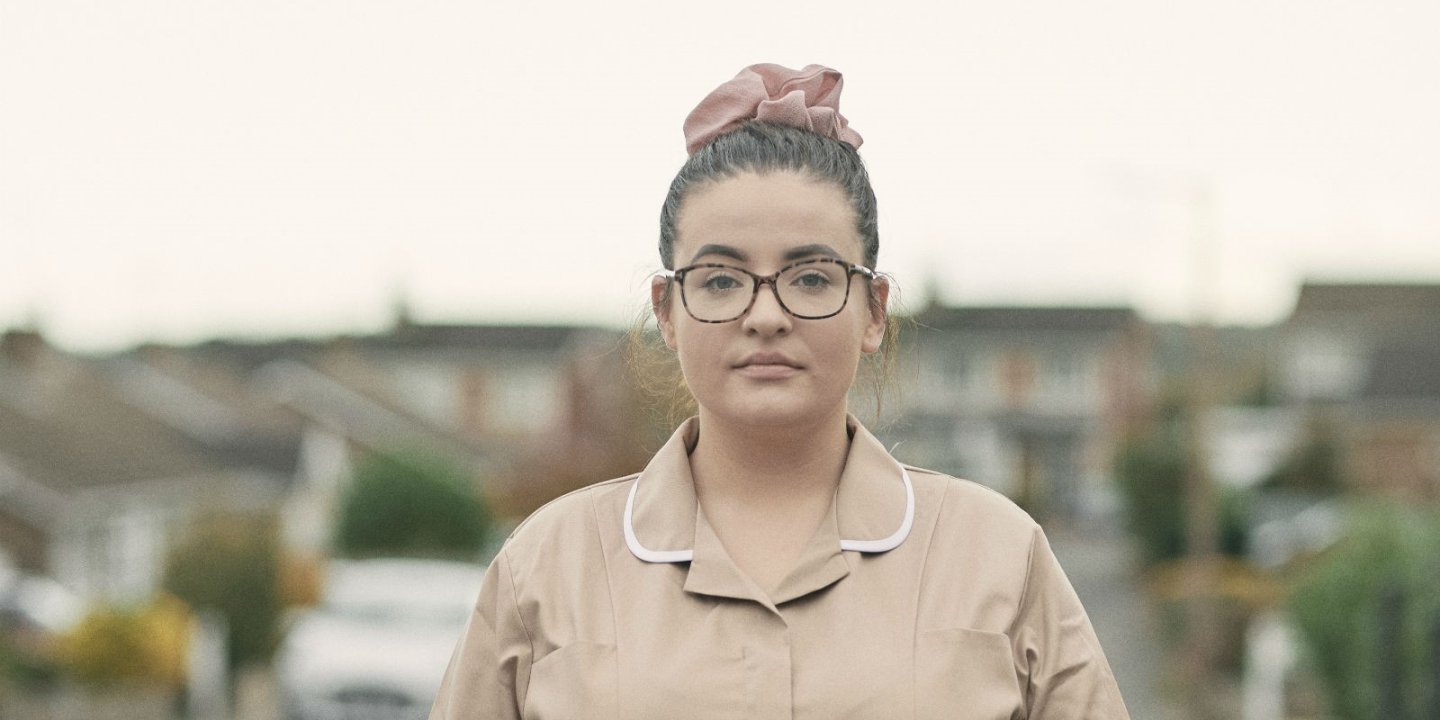
Sarah Jayne Roberts, 22
One of the biggest struggles I’ve found is people not understanding young people are affected. After sharing my diagnosis on social media, so many people said they had no idea someone like me could get it.
I’m nowhere near as active as I used to be – fatigue is one of the worst things for me. My body gets so tired that I find it really difficult to keep going.
The other main struggle has been my mental health. I was diagnosed with depression and anxiety shortly after my MS. It became a real problem, particularly thinking about the future. Last year it all came to a head. I felt like trying to end things, I didn’t want to carry on.
There was too much going on in my head and I couldn’t deal with it. I was constantly worrying and wondering what tomorrow would bring. I thought I would never feel happiness again.
I was admitted to the local crisis team and referred for secondary mental health care. Looking back now I have recovered to a certain extent. I’m glad I kept going.
I work for the NHS now as a trainee nurse. I’ll be doing the trainee programme for the next few years and eventually I hope to be a registered nurse, health permitting.
There are days when I’m a blubbering mess worrying about what’s going to happen in the future. But there are fears in everyone’s lives and MS just happens to be mine.
5 years ago there were only a few treatments and now there are loads for relapsing MS. I’m very grateful to be diagnosed with relapsing MS in a time where I have treatment options Hopefully treatments will advance even more.
I can’t put it into words what it would mean to not worry about MS getting worse. It’s a condition where you don’t know what will happen and changing that would be amazing. It’s that little glimpse of hope that all this could be stopped. I hope we will get there.
Look out for more stories from our 30 under 30s coming soon. You can also use our form if you want us to share your story too.
We’re here for you
We’re here for everyone living with MS. We’ve got information you can trust and people you can talk to. You can also connect with us online

